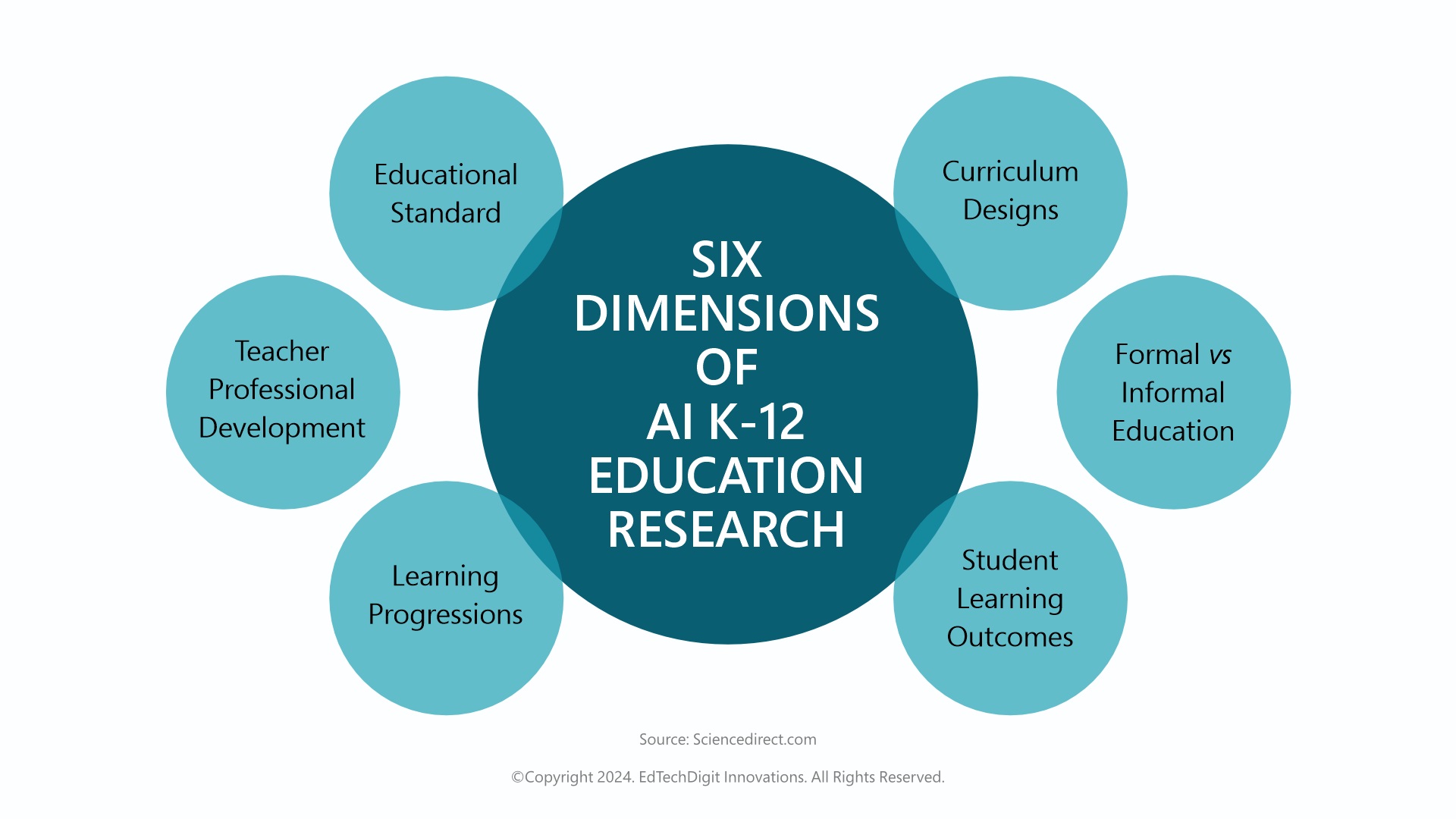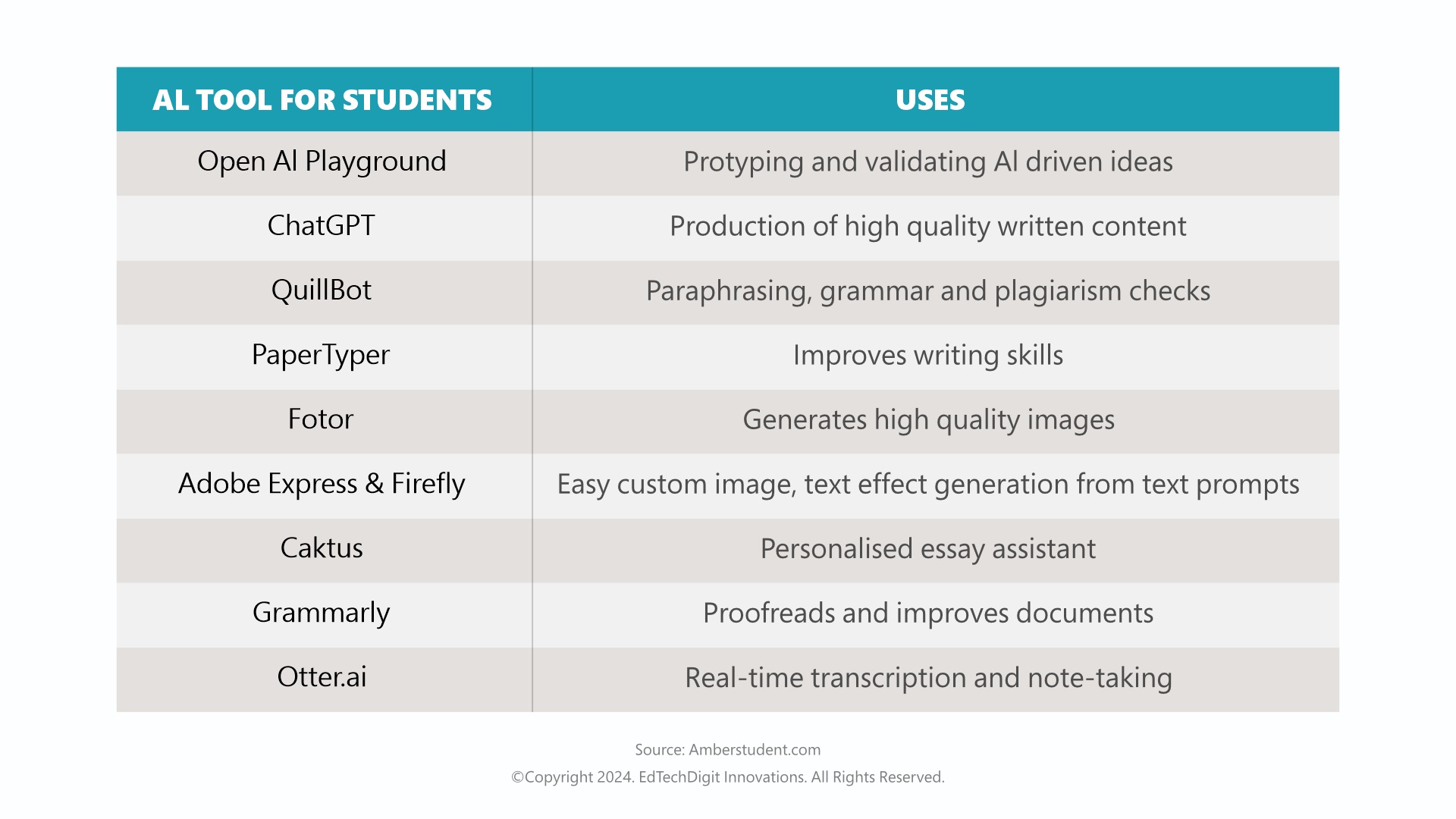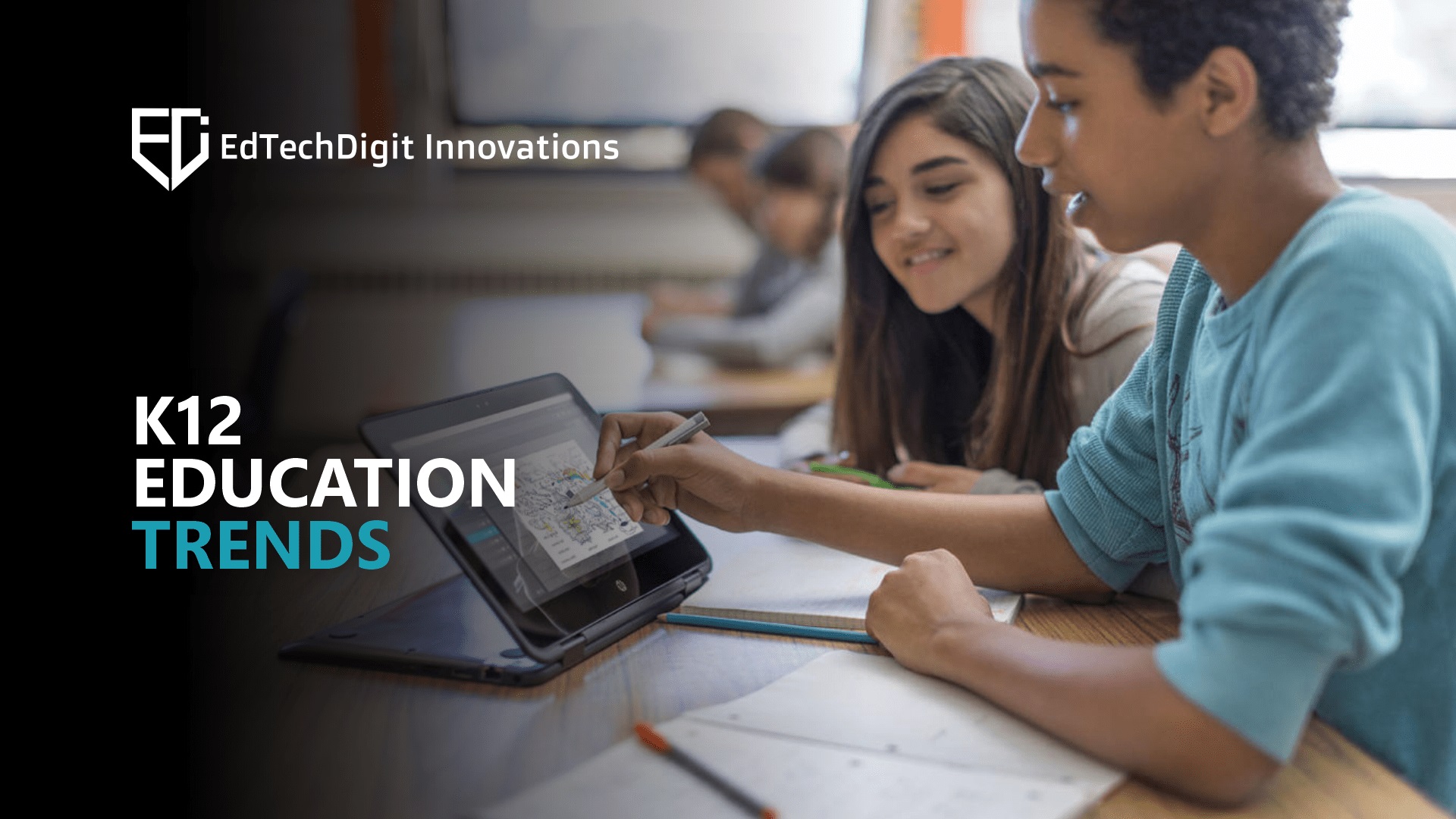The year 2025 is arriving sooner than ever when you witness the pace of educational technology strides. With the pandemic opening doors to the virtualization of education, online learning has been a trend. It all started with online teaching learning; which went on to an immersive transition. Today, learners are experiencing education like never before. Interacting with their immediate environment has been made possible with AI in K-12 education. this has brought incredible shifts in the way education and teaching are viewed today.

Artificial intelligence in K-12 learning addresses some of the biggest challenges in education today; such as improving access and quality, innovating teaching, and learning practices, accelerating progress towards Sustainable Development Goals 4, addressing inequalities regarding access to knowledge, and ensuring AI does not widen the technological divides. Let us delve into the world of AI-powered personalized learning in K-12 institutions, and learn about the most promising and emerging K-12 Education Trends in 2025.
Core Verticals of AI K-12 Education Research:

The core of the research aims at applying methods such as the co-creation process to create and evaluate AI curricula in secondary school grades. It also aims at providing reference to educators in the form of educational ideas and educational systems. These dimensions pave the way for a brighter K-12 learning scenario; with the following 8 Emerging K-12 Education Trends to watch out for.
- Strengthened Family Participation
Parental involvement has a positive impact on student achievement, socio-emotional learning, and academic scores. Knowing this can motivate parents to get involved deeper in their child’s education and stay in the loop with the education institutions to seek deeper engagement.
- Personalized Learning
Artificial intelligence tools and advanced algorithms will be used to create a thorough, personalized learning experience for K-12 learners. Apart from creating individualized learning programs, AI will be coerced into customized courseware as per learners’ needs. Never have we ever thought of artificial intelligence technology bringing in the human factor in the years to follow.
- Tutoring Assistants and Collaboration
Imagine having a round-the-clock AI assistant to guide you and train you on trivial educational concepts with AI-powered virtual tutors. Their ongoing collaboration with the learners allows overcoming challenges and achieving their educational milestones.
- Continuous Upskilling and Reskilling Upskilling and reskilling are the hottest trends to look for; when thinking of advancements in the education industry. As the job space evolves rapidly, timely skilling becomes an indispensable component of the K-12 learning industry. AI, digitization, automation, and other advanced technologies are transforming industries at an unprecedented rate. Upskill with the best courses available to escape FOMO!
- Enhanced Student Engagement
With advanced and enhanced AI-educational tools and strategies in place; learners are drawn into the entire learning experience. This ramps up their engagement and makes them an active participant in their education journey.
- Targeted Timely Interventions
AI acts as a radar that assists trainers and education facilitators in identifying struggling learners and offering them targeted support before they lag. This technological intervention allows massive progress in their educational milestone attainment with possibly no delay.
- Immersive Learning with Virtual field trips and Tutorship
From virtual field trips to interactive simulations, Audio-video reality technologies transport students to new worlds, igniting, and deepening concepts like never-before. Artificial intelligence in education technology boosts engagement and curiosity with sheer gamification and fun-based interactive enhancements. These also help develop critical thinking skills and enable exploratory abilities in the learners.
- Facilitating Learning versus Teaching
Artificial intelligence tools are there to assist in navigating educational challenges. The jobs of the facilitators and trainers are transforming while providing enhanced academic experiences.
Popular K-12 Education Tools to Explore in 2025:

Apart from the amazing AI-powered tools listed above; K-12 learners can explore Century Tech (offers adaptive learning pathways based on learners’ understanding levels), Knewton Alta (Identifies knowledge gaps and provides targeted practice with continuous feedback loop), Querium (Offers personalized AI-powered tutoring in STEM subjects), and Smart Sparrow (a versatile tool for personalized instructions) for enhanced educational experience and lasting learning.
The Way Forward:
As the artificially intelligent K-12 education and learning tools develop; the ease of learning at their own pace for every learner begins. K-12 institutions must accommodate every possible guideline to facilitate K-12 learners with the best of educational technology nuances. This ushers a massive advantage for learners as well as facilitators fraternity to cater to much-needed trivial concerns that need much wider attention by both. These can be easily driven by AI technology for enhanced and fastened learning rate among students. This is why educators must upskill to these smart technologies to become saviors for diverse learner categories far and wide!

